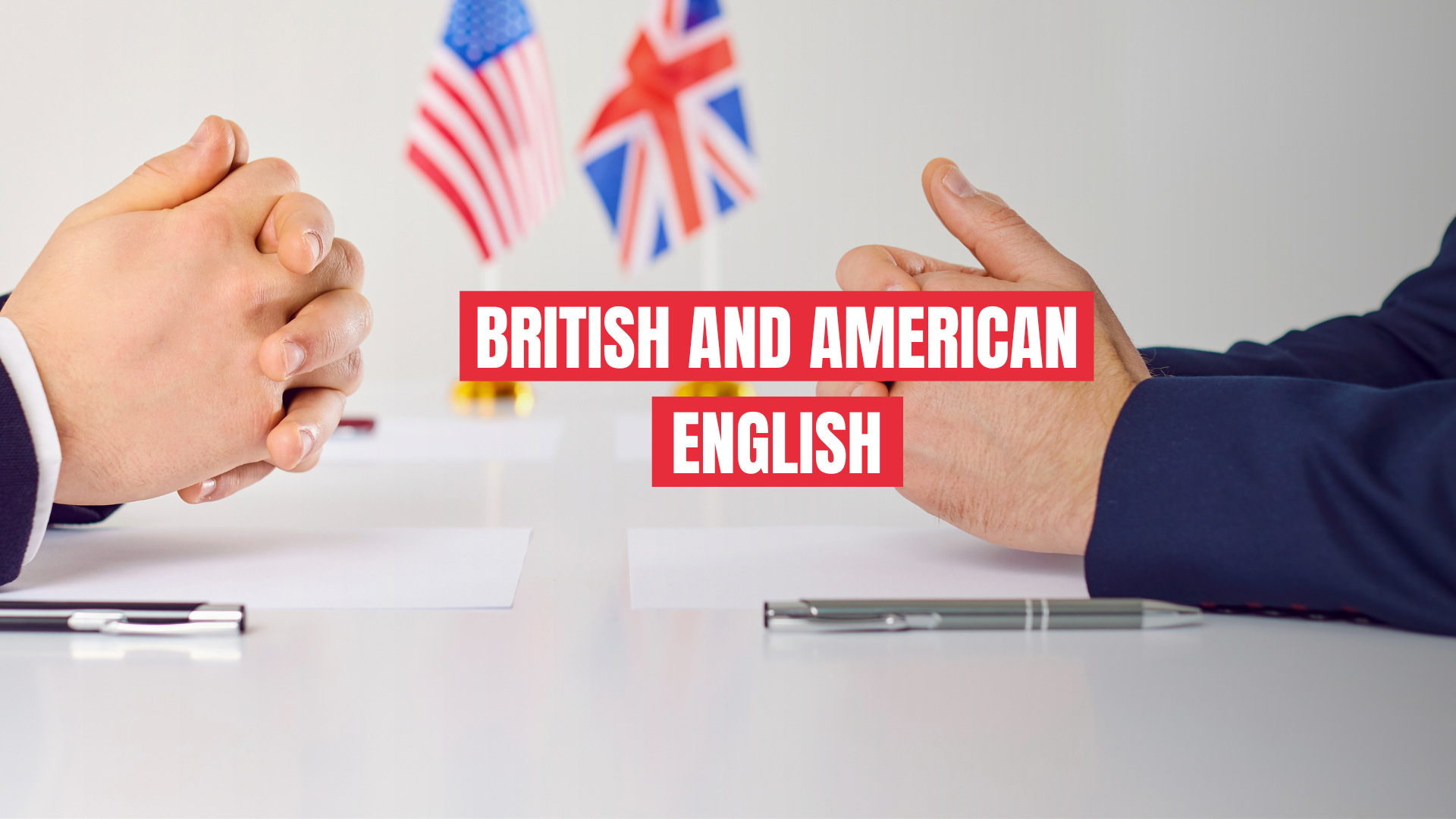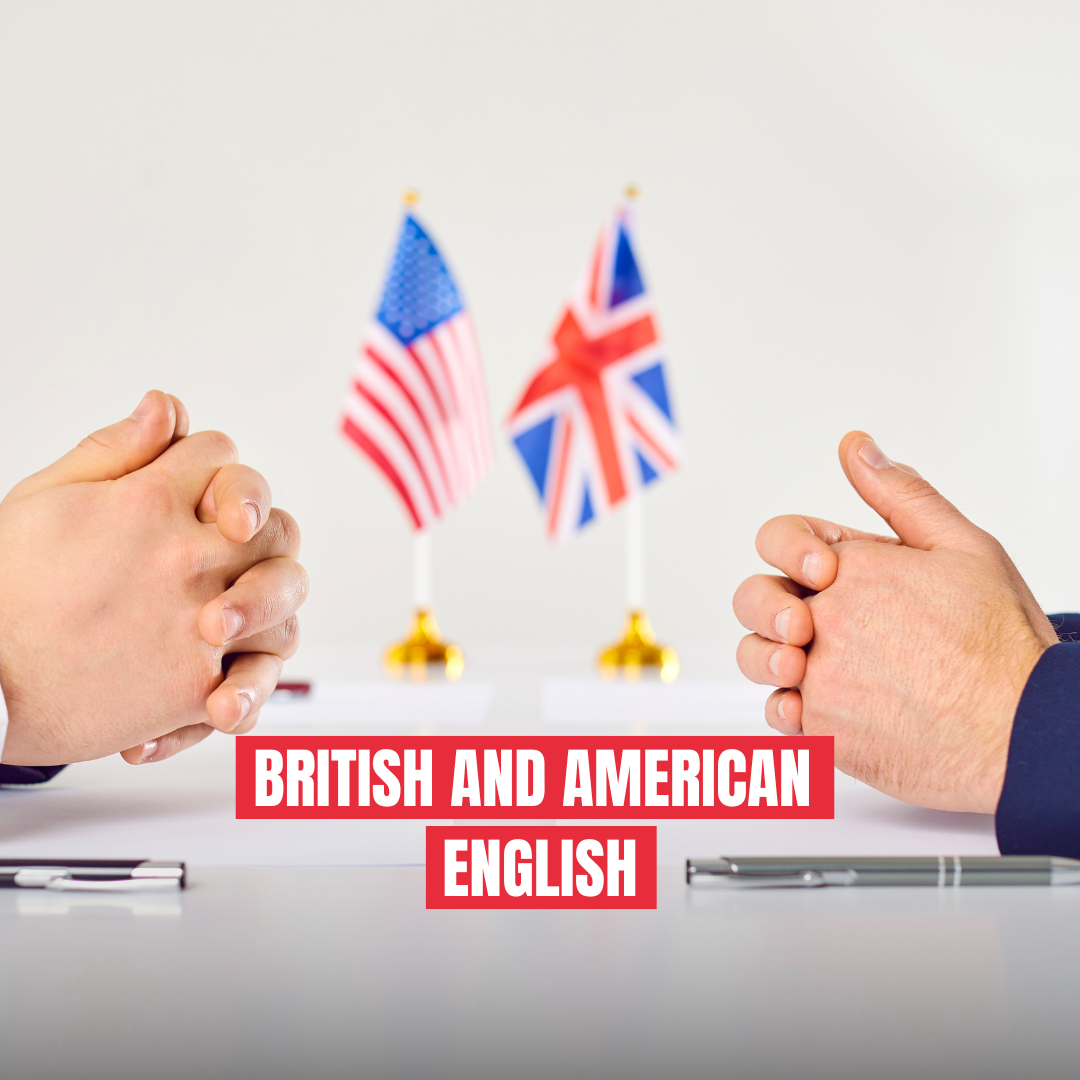The differences between these two major varieties of English are small. The main difference between British English and American English is in vocabulary. Other differences include pronunciation and, to a lesser extent, grammar.
Vocabulary:
Here are a number of common examples of the vocabulary differences. Film, for example, is British. Movie is American. Pavement, where pedestrians walk along the street, is British whereas sidewalk is used in the USA. Biscuits are British, cookies American. Sweets are BE (British English), candy is American. Lift is BE whereas elevator is American. In Britain, you wear trousers on your legs, in America, pants. Pants in Britain are what you wear under your trousers (these are underpants in the USA). In informal British English slang, pants also means ‘terrible’, for example if you see a film and it’s a terrible film, you say the film was ‘pants’.
In the USA, they prefer to use the word ‘restroom’ or ‘bathroom’ instead of ‘toilet’. Toilet is acceptable in the UK, but in American English, the word ‘toilet’ is seen as an ugly, slightly impolite word, so in America, they use the word ‘restroom’, or ‘bathroom’, even though in reality, nobody has a nice, long rest in a public restroom or enjoys a relaxing bubble-bath in a public toilet. In Britain, we usually use the word ‘loo’ for ‘toilet’, which is quite an informal word.
Grammar:
There are small grammar differences between American and British English. British English prefers to use the present perfect whereas American English prefers to use the past simple in situations such as the following:
British English: ‘Have you eaten dinner yet?’
American English: ‘Did you eat dinner yet?’. In British English, we don’t use the word ‘yet’ with the past simple whereas it’s common to use ‘yet’ with the past simple in American English. It’s the same for words like ‘just’ and ‘already’. Americans would typically say: ‘I already ate dinner’, or ‘I just ate dinner’. In British English, we would say: ‘I’ve already eaten dinner’, or ‘I’ve just eaten dinner’.
Some past forms, past simple forms or past participles are different in American English. In British English, ‘got’ is the past participle of ‘get’, whereas in American English ‘gotten’ is the past participle of ‘get’. The past simple of the word ‘dive’ in British English is ‘dived’. In American English it’s ‘dove’. An American would say ‘I dove into the swimming pool’. A Brit would say ‘I dived into the swimming pool’.
There are also some differences in terms of prepositions. In American English, you say ‘on the weekend’, but in British English, you say ‘at the weekend’. In British English you say ‘different to/from’, in American English it’s ‘different than’. Many group nouns in British English can be both singular or plural. Examples are: the government is/are, the band is/are playing, the team is/are losing, the staff is/are very helpful. In American English, group nouns are singular, not plural.
Pronunciation:
Another contrast between British and American English, of course, involves pronunciation. American English is rhotic, meaning that the R is always pronounced. In British English, which is non-rhotic, R is only pronounced at the beginning of a word or before a vowel sound but not when the R is followed by a consonant sound. Think of the following two words: four eggs. The ‘r’ in ‘four’ is followed by the vowel, ‘e’, so we pronounce the ‘r’ in ‘four’. If we take the word ‘park’, for example, the ‘r’ is followed by the consonant ‘k’, which means we don’t pronounce the ‘r’ in this word. There are exceptions, of course (there always are in English). One exception is the word ‘iron’. In this word, the ‘r’ is followed by the letter ‘o’, which is a vowel sound, yet we don’t pronounce the ‘r’. It remains silent.
Conclusion:
There is a great deal more to be said about the differences between the two major varieties of English. Even some phrasal verbs can be different (Fill out a form is far more common in American English whereas fill in a form is more commonly used in British English). However, there are far more similarities than differences and the two major varieties share only minor differences, which means that communication problems rarely occur between native speakers of British versus native speakers of American English. It’s basically the same language.
Author: by Gid (Gideon Parry), teacher at Speak Up London





